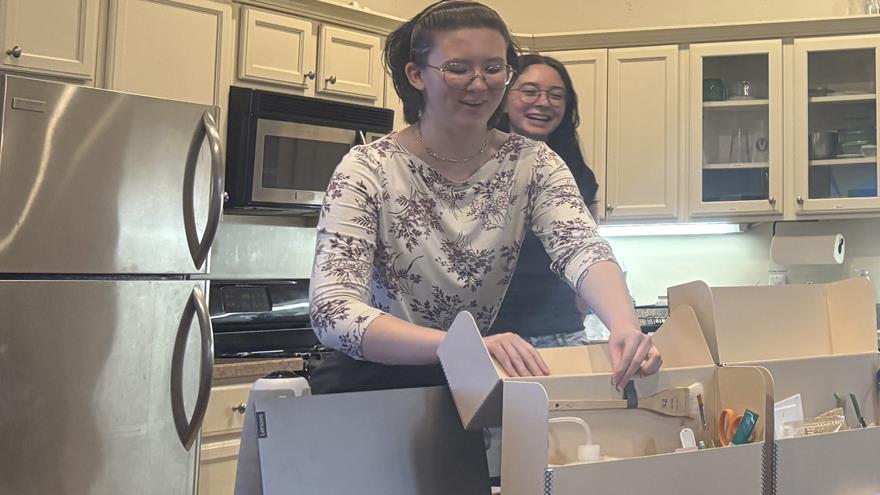Q&A With Scott White: 12 Years After 9/11, Where Are We Now?

- Drexel Co-ops Learn the Art of Conservation and Collections Care
- How Drexel University is Seen in ‘Philadelphia Revealed’
- ‘Philadelphia Revealed,’ From the Atwater Kent Collection at Drexel Reflects 350 Years of Philly History
- Drexel Awarded $850K Grant from The Pew Charitable Trusts To Help Make Atwater Kent Collection Accessible to Public

Scott White, a professor in the College of Computing and Informatics, teaches classes on emergency management and homeland security management. He also serves as the director of the Computing Security and Technology program. Prior to his academic career, White served in the Canadian Security Intelligence Service.
DrexelNow reached out to White for his thoughts on living in a post-9/11 world.
Are we safer now than we were before 9/11? What kind of progress has been made in preventing terrorist attacks?
The war in Afghanistan initiated what we now refer to as the “global war on terror.” As a result of these efforts, the Taliban government was removed from power and al-Qaida in the region was relegated.
Although counter-terrorism has a military component, that alone cannot define our international efforts at preventing terrorist crime. The government’s counter-terrorism initiatives also included diplomacy, intelligence, security and law enforcement activities. For example, in the wake of 9/11, the United Nations Security Council, at the behest of the United States, unanimously adopted Resolution 1373, which, among its provisions, obliges all states to criminalize assistance for terrorist activities, deny financial support and safe haven to terrorists, and share information about groups planning terrorist attacks.
Although there has been some progress made in preventing terrorism, al-Qaida and its affiliates are still very active in the Arabian Peninsula, Pakistan and North Africa. Unfortunately, these terrorist organizations still have an effect on both our national security and our homeland security.
It’s been more than a decade since the creation of the Department of Homeland Security. Do you think it has been effective? What is its future?
The DHS consolidated 22 agencies and close to 200,000 employees under one umbrella organization. As a department, it has been fraught with accusations of lack of transparency, waste and inefficiency. Culturally, the DHS has struggled as individual agencies have been forced to abandon their primary missions and adopt a greater law enforcement role. For example, as a result of this over-emphasis on security, the DHS was blamed for the federal government’s dismal response to the victims of Hurricane Katrina.
The DHS has a sustainable future. It is my view, however, that the DHS must return mission focus back to its constituent elements and leave the policing of terrorism to other federal law enforcement agencies. It is important to remember that the FBI, under the Department of Justice, is still the lead investigative agency with jurisdictional authority over all terrorist activity in the United States, not the DHS.
In light of the recent revelation of the NSA’s monitoring of Americans’ phone records, how do we balance citizens’ privacy with their security?
At its core, terrorism challenges the state’s responses and adherence to liberty and democracy. Thus, how we respond in both theory and practice to threats from within our nation or beyond our borders tests the validity and application of our societal principles. How best to facilitate the prediction, prevention and containment of and response to terrorist behavior without resorting to illegal or anti-democratic practices is the challenge for government, law enforcement, the intelligence services and, ultimately, us as citizens.
Balancing privacy and security can be done, in theory. To move from theory to practice, however, will require adherence to internal and external accountability mechanisms, clear strategic statements from the government, adherence to the law and ultimately a security culture that recognizes the right of the citizenry to privacy.
How have the wars in Iraq and Afghanistan affected the way Americans view the possibility of a military strike against Syria?
It is evident to even the most casual observer of the nightly news that the nation is “war weary” and in no mood for another military intervention, especially when it has not been proven that Syria represents a clear and present danger to the United States. Saying this, however, the global moratorium on the use of chemical weapons as delineated by both the Geneva Convention and the Chemical Weapons Convention must be upheld.
The use of chemical weapons against a military target in itself is contrary to the standards of war, but when that weapon acts indiscriminately it indicts the user by demonstrating their depraved indifference toward an unsuspecting populace; thus we must view the users of such weapons as international war criminals and act against them appropriately. By doing so, we send a clear message to all such criminals that the global community will not tolerate such heinous and despicable conduct.
In This Article
Drexel News is produced by
University Marketing and Communications.